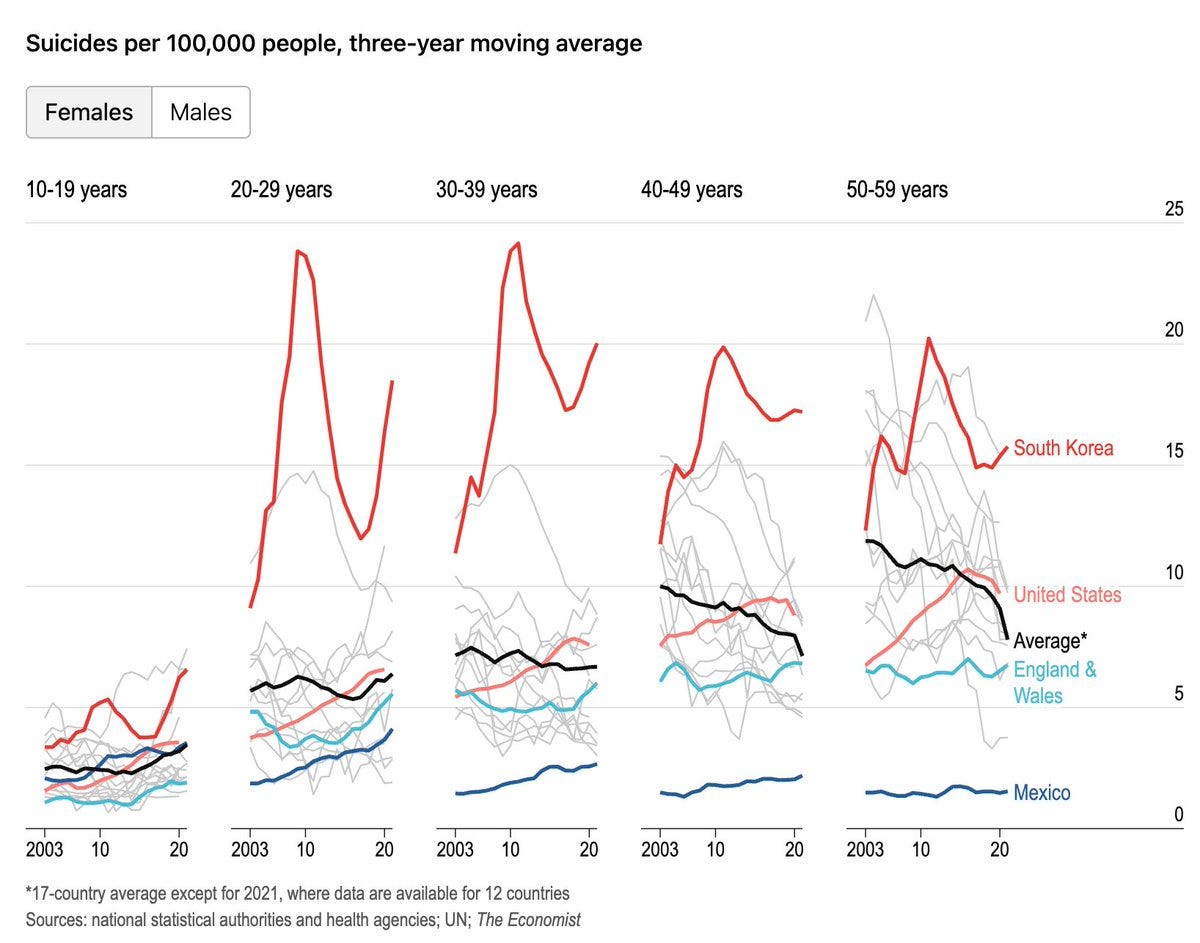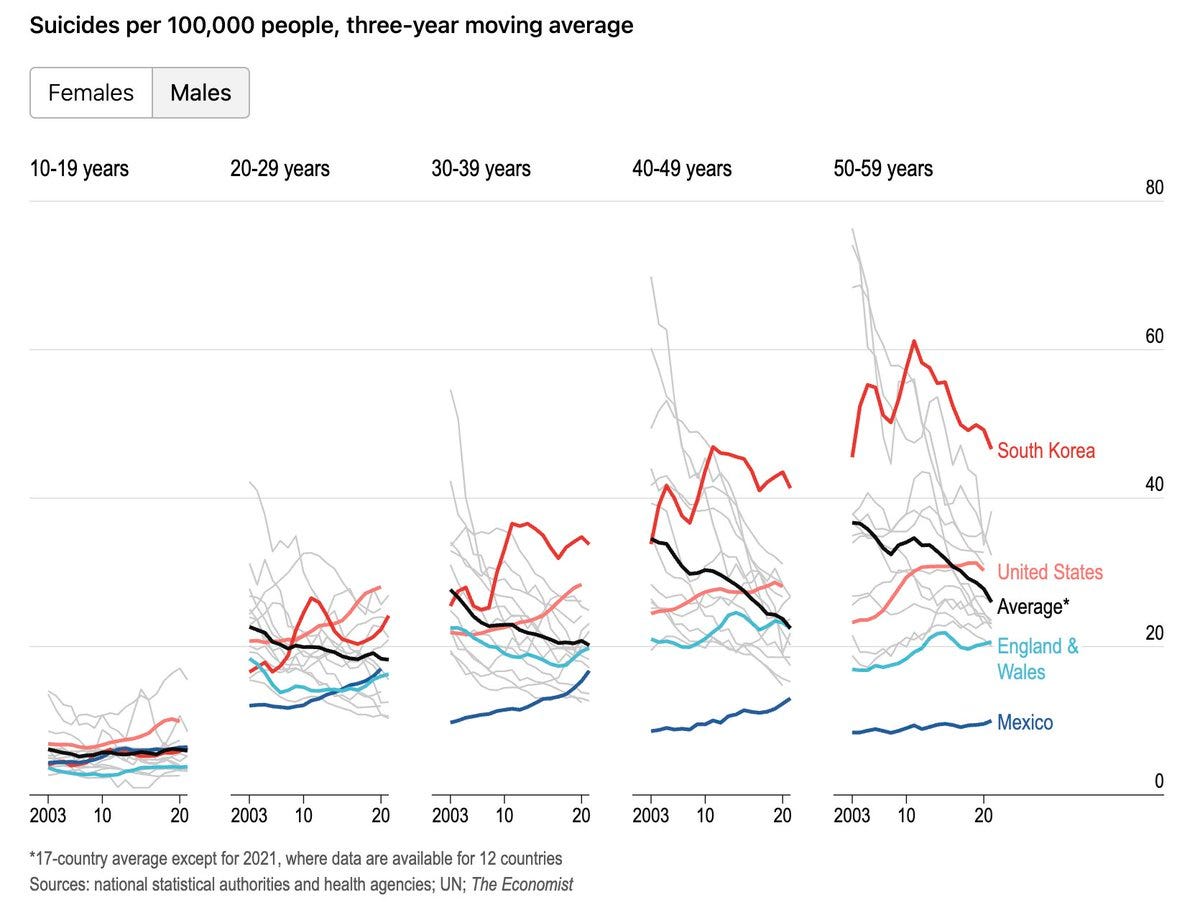Wealthy societies are struggling with twin crises: depression and low fertility. Is this a coincidence?
Happiness and hope for the future may be necessary conditions for voluntary child rearing. If you think society is doomed, you may not wish to bring children into this world. Iranian exiles told me precisely this, in desperation for their country’s future. Whereas if you think life is great and full of promise, you may be more excited to bring up kids.
South Korea has incredibly high rates of male and female suicide. The birth rate, meanwhile, is ultra low: 0.84 births per women. These two facts may be connected.
I’ve actually changed my mind. Previously, I was persuaded that birth rates were higher in countries where mothers receive more support from governments and fathers - as argued by Doepke, Hannusch, Kindermann and Tertilt 2023.
But how can we explain Finland? Finnish fathers spend more time than mothers on childcare, state-provision is world-leading, and companies accommodate flexibility. Yet in 2022, Finland’s total fertility rate was ultra low: 1.32! These facts are hard to square.
I openly admit I was wrong. People do all kinds of things that are time-intensive, if they want it. The binding constraint may not be material but mental.
In China, women are much less likely to have kids if they’re depressed. This relationship is strongest for wealthy urban women in their 30s. Likewise in the US, happier, optimistic women are more likely to want children. Yet many women are not happy. One quarter are depressed.
Why are American women so depressed? I don’t know. It may reflect objective reality: the stress of managing full time jobs with so little support from the state - see Jessica Grose’s excellent new book, “Screaming from the Inside”.
But depression is not confined to mothers, it’s highest among young teenage girls. What’s going on?
Some evidence points to cognitive distortions. Take the economy, for example. Americans think their local economy and the national economy are doing terribly. But this is all in their heads. The business cycle is up!
Media consumption may be fuelling sadness. Corporate algorithms amplify OUTRAGE, to maintain attention and maximise advertising revenue. Users’ own media consumption is also biased by negativity. None of this is to deny genuine risks (like poverty, inequality, discrimination, climate breakdown or right-wing populism), but you can see at least on the economy that subjective perceptions are totally out of line with reality. The richest, most privileged people in the world are immersing themselves in horror stories, believing that everything is terrible.
Tackling mental health and corporate algorithms that hype up negativity may be important for fertility. The major bottleneck could be our outlook on life, are people happy and optimistic for the future?









Media algorithms generate and amplify outrage, sure, but inflation and the precarity resulting from low savings and health insurance tied to jobs are very real. It's not entirely in people's heads.